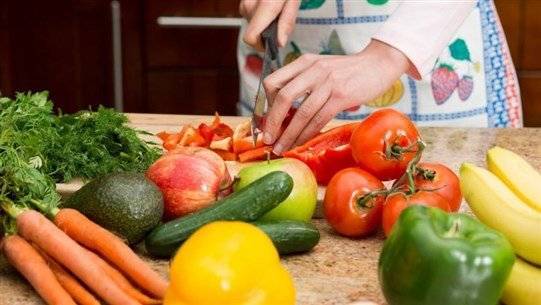Doctors emphasize the importance for both type 1 and type 2 diabetes patients to follow a daily diet that includes vegetables and fruits. Some specialists encourage considering a largely plant-based diet that includes certain types of vegetables. Dr. Tarek Mahmoud, the medical director at Concepto Diagnostics, states, "While starting a plant-based diet is not a direct treatment for diabetes, many health benefits can be beneficial for diabetic patients." He adds, "Diet is critical in managing diabetes because the amount of carbohydrates you consume significantly affects blood sugar levels. The importance of a person with diabetes educating themselves about the risks of consuming certain foods, especially those high in free sugars, cannot be overstated."
A review in the journal Nutrition found that a low-carbohydrate diet can support diabetic patients, as it reliably reduces elevated blood glucose levels and has been shown to decrease or eliminate the need for medications. Generally, vegetables that grow above ground are low in carbohydrates, while those that grow below ground tend to be high in carbohydrates. There are some exceptions, such as butternut squash, which grows above ground but is high in carbohydrates. Summer squash contains fewer carbohydrates and is a better alternative for diabetes patients.
Dr. Deborah Lee, MD from Dr. Fox Online Pharmacy, states that the best vegetables for diabetic patients include: green leafy vegetables such as cabbage, broccoli, Brussels sprouts, spinach, and kale; asparagus; green beans; eggplant; peppers; celery; mushrooms; legumes such as chickpeas and lentils; tomatoes; onions; and cucumbers. She adds, "While fresh vegetables are likely to have the best nutritional value, canned and frozen vegetables are also highly nutritious and are excellent alternatives."
### Vegetables to Avoid in the Diet
Dr. Mahmoud explains that certain vegetables may pose a problem for diabetic patients, saying, "Starchy vegetables, such as corn and potatoes, are high in carbohydrates, which consequently affect blood sugar levels. Boiled potatoes have a high glycemic index rating of 78. This does not mean that these vegetables are completely off-limits for diabetics; they can still be enjoyed in appropriate portions, but it is essential to be aware of exactly what you are eating."
According to him, the following vegetables should be consumed in moderation in a diabetes-specific diet: potatoes, sweet potatoes, butternut squash, yams, sweet corn, vegetable juice (which is concentrated and high in carbohydrates), no more than one full tablespoon of tomato puree, and a bowl of chopped carrot sticks.
### How Diet Can Help Manage Diabetes
A review in the journal Medical Clinics of North America suggests that consistency with calorie and carbohydrate intake, in particular, can be beneficial in managing diabetes. Another review in Vnitrní Lékarství, a medical journal for the Czech community, found that a low-carbohydrate diet showed positive results in treating diabetes, metabolic syndrome, and obesity. The review indicates that adhering to a low-carbohydrate diet can lead to weight loss, lower medication doses, and in some cases, remission of type 2 diabetes when conducted under medical supervision.
Low-glycemic-index vegetables are suitable for diabetic patients and those at risk of diabetes, as a diet rich in fruits, leafy vegetables, legumes, nuts, and whole grains can help reduce the risk of developing type 2 diabetes. Individuals with diabetes should aim to avoid vegetables with a high GI ranking, as the body absorbs blood sugar from those foods much faster than from foods with a low glycemic index. This includes artichokes, asparagus, broccoli, celery, cauliflower, eggplant, green beans, lettuce, peppers, peas, and spinach.




